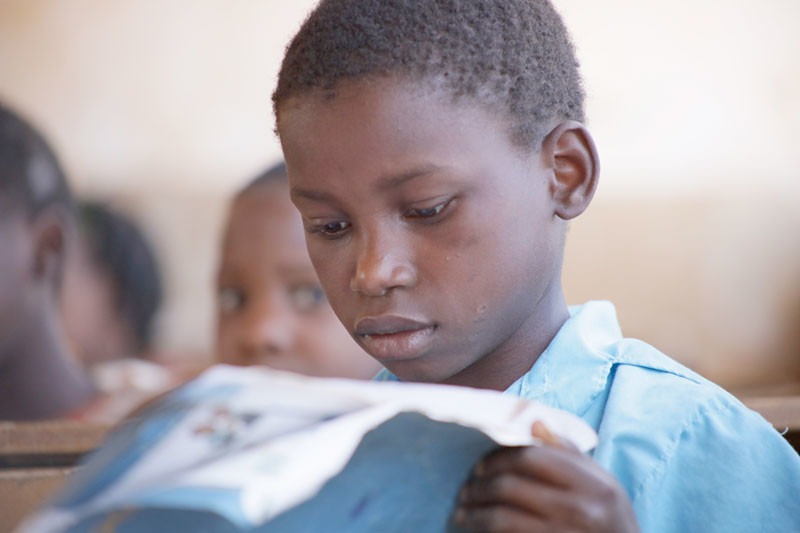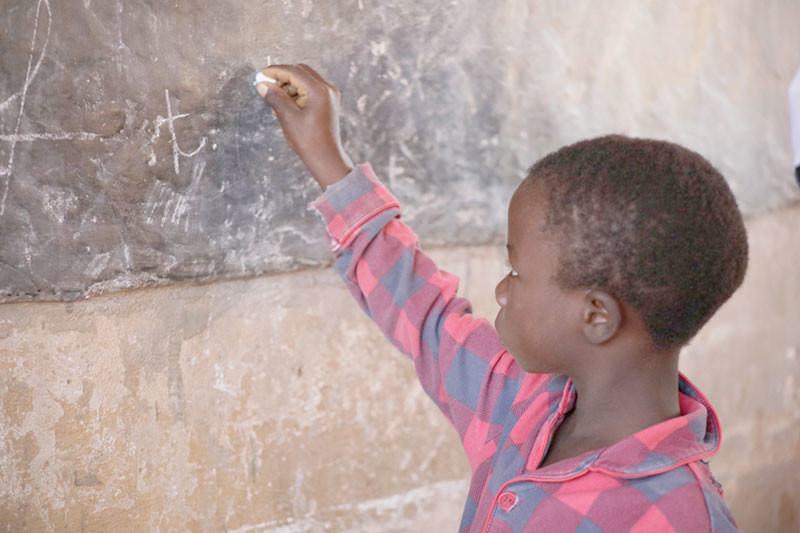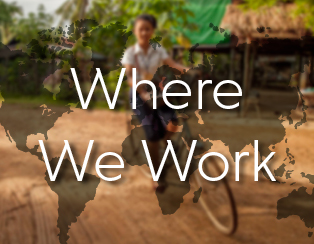Overcoming language barriers to improve education
By Leopoldino JeronmioOctober 10, 2017Education experts in Mozambique collaborate to design learning and teaching materials
Education experts in Mozambique collaborate to design learning and teaching materials
MAPUTO– For Maria Alfainho, who has worked in education for 36 years in Mozambique, fully communicating with her students hasn’t always been easy.
“All education programs used to be written in Portuguese and it was a burden to exchange knowledge to children who don’t really speak Portuguese,” she says, noting that more than a dozen local languages are spoken in Mozambique.
Her passion for mother-tongue language education for early grade students inspired her to serve as local bilingual education representative for the Let’s Read! (Vamos Ler! in Portuguese) program.

Partnering with the Mozambican government to improve the reading and writing skills of children in grades 1, 2 and 3, Let’s Read! is developing literacy training and materials in the local languages of Emakhuwa, Elomwe and Echuwabo. The program is simultaneously supporting oral language skills in Portuguese to prepare 800,000 early grade students for the transition to the national language in grade 4.
The Let’s Read! program is funded by the U.S. Agency for International Development, and implemented by Creative Associates International, in close partnership with World Education, Inc., Overseas Strategic Consulting, American Institutes for Research and blueTreeGroup.
To meet the growing demand for education in Mozambique, learning and teaching materials must be easily comprehensible, culturally appropriate and able to address the needs of diverse communities throughout the country, says Corrie Blankenbeckler, Senior Associate for Instructional Systems and Governance at Creative, who oversees the reading materials development for the project.
“By designing student textbooks, teacher guides, exercise books and supplementary readers for school and home environments where multiple languages are spoken, Let’s Read! is ensuring young students have an opportunity to overcome learning barriers and cultivate critical early literacy skills,” says Blankenbeckler.
Focusing on focal points
Let’s Read! selects “focal points” like Alfainho who have a teaching background to work closely with fellow educators to build bilingual education awareness for early literacy success at the grassroots level.
Alfainho says the program’s bilingual early literacy approach will transform education in the complex Mozambican language setting, which has more than 16 local languages in its 10 provinces.
“There was absolutely nothing in local languages and reading materials for bilingual education,” she says. “We had to adapt the Portuguese language materials to the local context.”

Alfainho, a volunteer focal point for her home province of Zambézia, was invited to attend a 15-day materials development workshop in May.
Facilitated by Ministry of Education officials, curriculum experts, university language specialists and Let’s Read! staff, the workshop brought partners together to develop learning and teaching materials.
“I am privileged to be part of bilingual education focal points that have been invited to participate in the Let’s Read! material development process,” Alfainho says, adding that Let’s Read! has a unique opportunity to “ease up the burden of financial and material resources to expand bilingual education once for all in Zambézia and Nampula.”
Taking place in the capital of Maputo, the workshop brought education and language experts together to discuss culturally and age-appropriate textbook themes, stories and illustrations for a bilingual classroom environment.
Alfainho believes that bringing together the experts to develop bilingual education materials will pay off in equipping teachers and optimizing learning outcomes.
“These experts bring their knowledge, technology and methodologies for strategic bilingual education material development to enable fluent reading, comprehension in the local language, and gradually gaining Portuguese reading and writing skills to children at the end of cycle one,” she says.
Looking to a successful future
“I am looking forward to returning in class to give at least one lesson using these materials, as well as mobilizing the communities to understand the purpose and adhere to bilingual education for its benefits to both the children and the teacher.”
Alfainho says she will continue to work with her peer bilingual and language experts to unlock the language barriers for young learners to access knowledge.
“The interesting thing is that the child has basic knowledge from his or her own language and culture,” she says. “But all of it gets lost when the child doesn’t understand a thing from the school books when they are written in Portuguese.”
Alfainho says she hopes that teachers will have the best foundation to focus on content, methodologies, and lesson planning techniques to interact with children by the end of the materials development process.
“I am looking forward to returning in class to give at least one lesson using these materials, as well as mobilizing the communities to understand the purpose and adhere to bilingual education for its benefits to both the children and the teacher,” says Alfainho.
Pieter Potter, Chief of Party for Let’s Read!, says an educator who is well-equipped with teaching and learning materials will help to ensure the success of the early grade bilingual reading program.
“Empowering teachers with effective materials to apply in the classroom combined with a longer term coaching approach and class observations is the best approach to ensuring long-term sustainability,” explains Potter. “The development of these materials is a major milestone for improving literacy skills for early grade readers in Mozambique.”
With editing by Natalie Lovenburg and Kelsey Woodrich.


